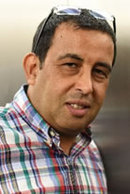Université Claude Bernard Lyon 1 (UCBL)
Teams
Institute of Analytical Sciences
Created on 1st January 2011, the Institute of Analytical Sciences (ISA) is one of the largest european centers of research, training and expertise in this field. Located close to the scientific campus of Doua (Lyon – Villeurbanne) within the « Cité Lyonnaise de l’Environnement et de l’Analyse » (CLEA), the ISA is a joint research unit (UMR 5280) affiliated to the CNRS (The National Center for Scientific Research) and the University Claude Bernard Lyon 1. The institute brings together more than 120 scientists and technical staff with a range of expertise from theoretical chemistry through modelisation, biochemistry, analytical chemistry to physics. ISA has also a wide and cutting edge equipment. The Institute has set up its research activities into 3 Axis : Multidimensional approaches for complex samples, Surface and Miniaturisation for Analytical Research And Technology, Theoretical and experimental approaches for molecular interactions. Research focuses on the development of new methods through continuing technological innovation for analysis of challenging systems across disciplines, with applications in environment, health, industrial analysis on-line, materials science. Its activites are driven both by fundamental objectives in analytical sciences and by interactions with the socio-economic environment at the local, national and international levels.
The group of Prof. Errachid is highly experienced in the fabrication of lab-on-chips for (bio)chemical detection based on flexible polymeric materials (developed by electroless deposition of gold or soft lithography (replica molding and µCP)) and soft lithography. The group makes its activities based in three laboratories. The first is a wet laboratory for biological and chemical development. Chemical oxidation, functionalization (thiols and silanes), and immobilization techniques (CNTs, NPs, PPy, antibodies, coating antigen, etc) are prepared in this specially designed lab. The lab contains a multi-channel potentiostat (VMP3, EC-Lab, France) for fundamental research in electrochemistry (voltammetric, impedance, pulsed techniques, etc) for up to 16 independent potentiostat channels and and two SP-200 single-channel potentiostats (EC-Lab). The lab also houses a Princeton Applied Research potentiostat/galvanostat (VersaSTAT 3, Ametek® France) for impedance and voltammetry-based analysis. The second lab consists of research made on potentiometric measurements, an IONICON LCU-a to generate trace amounts of VOCs from aqueous standards that are analyzed with our developed biosensor devices, and covalent bonding of PDMS microfluidic devices onto silane-functionalized thermoplastic films with specific applications (micromixing, microfiltering) for throughput of blood, plasma, VOCs, etc., for multiplex detection using O2 plasma (Diener PCCE). The third lab consists of surface characterization techniques (AFM, Nano-observer, CSI Instruments and CAM, OCA 15Pro) , a semi-automated µCP/NIL machine (GeSIMs µCP, Germany) for micro/nanopattering of surfaces and development of micro/nanostructures and also the InnoStamp 40, based on the InnoStamp technology, fully automated for nanopatterning processes with a high process reproducibility, nanometric resolution and possibility of multiplexing solution and allows users to control their processing in order to transfer a wide range of components homogeneously onto defined surfaces. It also contains a Smart Force capillary force assembly tool for fluorescence detection within microfluidics. This lab is also used for packaging (wire bonding, epoxy passivation etc) of fabricated BioLab-on-a-Chip devices for biomedical and environmental applications.
Institut de Recherche sur la Catalyse et l'Environnement de Lyon
 The “Institut de recherche sur la Catalyse et l’Environnement de Lyon” (IRCELYON) is a joint research unit (UMR 5246) affiliated to the CNRS (The National Center for Scientific Research) and the University Claude Bernard Lyon 1. The institute brings together all competences in heterogeneous and homogeneous catalysis over the Lyon area and forms the largest catalysis laboratory in France and Europe. It includes a permanent research staff of 115 members from CNRS and University and has many PhD students, post-docs, and invited scientists from all over the world.
The “Institut de recherche sur la Catalyse et l’Environnement de Lyon” (IRCELYON) is a joint research unit (UMR 5246) affiliated to the CNRS (The National Center for Scientific Research) and the University Claude Bernard Lyon 1. The institute brings together all competences in heterogeneous and homogeneous catalysis over the Lyon area and forms the largest catalysis laboratory in France and Europe. It includes a permanent research staff of 115 members from CNRS and University and has many PhD students, post-docs, and invited scientists from all over the world.
The group ATARI in which JM Chovelon works, develop analytical tools to environmental and catalytic applications. Most of the applications developed used TD/GC/MS for air analysis and GC and LC, ionic chromatography, for water control but other techniques such as FTIR, DRX, BET, XPS are also used for the characterization of the materials.
Principal Investigators
 |
Prof. Abdelhamid Errachid, male, is a Full Professor Classe exceptionnel at the University Claude Bernard-Lyon 1 since the end of 2008. He received his Ph.D degree from the Universitat Autonoma de Barcelona in 1997. Between 1997 and 2001 he worked as Junior Research Scientist at the Centro National de microelectronica (CNM). He later joined the Department of electronics of University of Barcelona and IBEC as Senior Research, where he worked from 2001 till 2008 . Prof Errachid has obtained top-level results in the field of silicon-based (bio)chemical sensors using field-effect transistors and micro/nanoelectrode structures. His deep knowledge and understanding of the electronic devices structure as well as operation and interplay between (bio)chemical molecules and electronics, has resulted in development of novel (bio)sensor devices such as, the original nanosensor device based on olfactory proteins developed under SPOT-NOSED project, amongst others). Prof. A. Errachid has an extensive expertise in EU projects coordination and participation, including KardiaTool (H2020-NMBP-X-KET-2017 no. 768686), HEARTEN (H2020-PHC-26-2014, no. 643694), MicroMole (H2020-FCT-2014, no. 653626), DiagCan (FP7-PEOPLE-2013-IEF, no. 628363), Sea-on-a-Chip (FP7-OCEAN-2013, no. 614168), SMARTCANCERSENS (ICT FP7, no. 294993), and SensorART (ICT-FP7, no, 248763) projects. To date, he has published more over than 223-refereed Scopus papers and his h-index is 31. |
 |
Prof. Jean-Marc Chovelon, male, is a full Professor at Claude Bernard University since the end of 1999. He received his PhD degree from Ecole Centrale de Lyon in 1991. From 1993 until 1999 he worked as associate professor at Ecole Centrale de Lyon and then he joined Claude Bernard University in 1999. He has an extensive experience in international research programs either as a leader or as a participant. His research activities are mainly focused on the environmental chemistry which includes the photodegradation of organic pollutants in air and water and the development of analytical methods for environmental applications. He was AdHoc expert for EFSA (European Food Safety Authorithy in the group Pesticide (2007-2013). He supervised more than 40 PhD and post-doc and to date, he has published more than 193 refereed Scopus papers and his h-index is 50. As a professor at Lyon university, his lectures are mainly devoted to (environmental) analytical chemistry. Lectures were also given in other universities (Belgrade, in Serbia, Jerusalem, Hochiminh City in Vietnam). |
 |
Dr Nicole Jaffrezic-Renault received her engineering degree from the Ecole Nationale Supérieure de Chimie, Paris, in 1971 and the Doctorat d’Etat és Sciences Physiques from the University of Paris in 1976. She is Emeritus Director of Research at the Centre National de la Recherche Scientifique, past president of the chemical micro sensor club (CMC2), president of the Analytical Division and member of the administrative council of the French Chemical Society. She was decorated as Knight of the Legion of Honor and Officer of the National Order of Merit. Her research activities in the Institute of Analytical Sciences, include conception and design of (bio)chemical sensors and their integration in microsystems. She coordinates several European and national projects for the development of microsystems for biomedical and environmental monitoring and for food safety. She published more than 560 papers with more than 11400 citations (H index: 53). Member of Editorial Boards: Editor of Sensors and Actuators B; Editor of Chemosensors (MDPI); Section Electrochemical Devices and Sensors; Editor of Journal of Biosensors, Biomarkers and Diagnostics; Associate Editor of Frontiers of in Analytical Chemistry; Associate Editor of Sensors (MDPI); Member for the Editorial Board Microchimica Acta; Member of the Editorial Board of Sensors Letters; Member of the Editorial Board of Sensors and Transducers Journal; Member of the Editorial Board of BIOSENSORS (MDPI); Member of the Editorial Board of Journal of Biochips & Tissue Chips; Member of the Editorial Board of Austin Food Sciences; Member of the Editorial Board of Austin Journal of Biosensors and Bioelectronics; Member of the Editorial Board of Journal of Bioanalytical Techniques. Member of Steering Committees: Member of the Permanent Steering Committee of the European Conference EUROSENSORS since 2003; President of Maghreb-Europe MADICA Colloqium, every two years since 1998 (150-200 attendees); President of the organization Committee of C2I 2013 à Lyon and member of the Directorial committee of C2I. Members of Evaluation Committees: President of the Evaluation Committee of ECO-TS ANR (2013); Awards: Frantisek Krisik Medal of the Czech national Academy of Sciences (2007); Chevalier dans l’Ordre National de la Légion d’Honneur (2012); Officier dans l’Ordre National du Mérite (2016); Prix Innov’Eco Eau 2013; Prix Techniques Innovantes Ademe-Pollutec 2013 |


 This website reflects only the authors’ view. The European Union is not liable for any use that may be made of the information contained herein.
This website reflects only the authors’ view. The European Union is not liable for any use that may be made of the information contained herein.